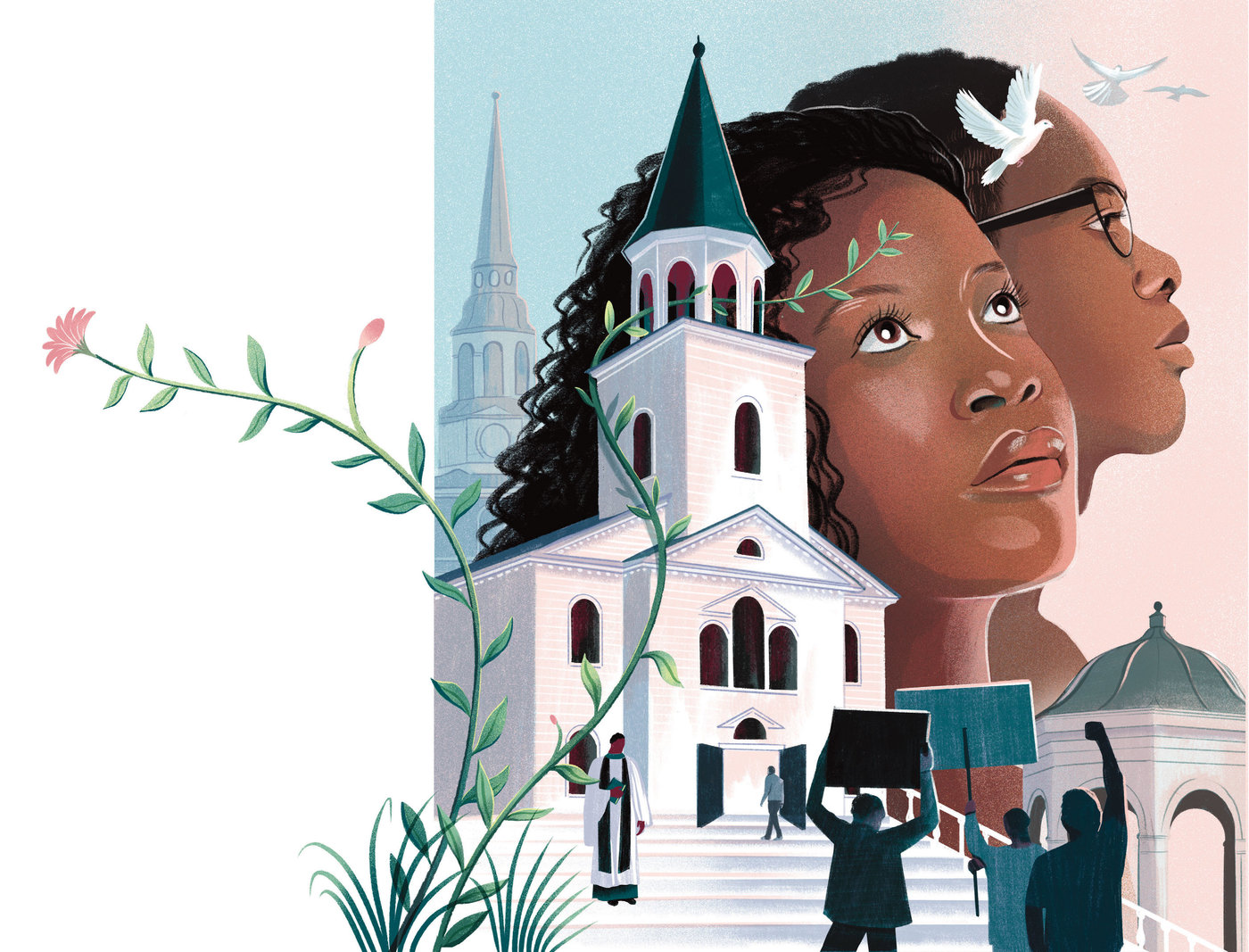
The pandemic of systemic racism is at center stage with the deaths of George Floyd, Breonna Taylor, and Ahmaud Arbery, among many others. Coupled with the pandemic of COVID-19, it has shined a light on inequality and the disparity within health care and economic systems that disproportionately affect Black and Brown communities.
For leaders of Black theological schools, the struggle against disparity and racism, and the fight for social justice, are at the core of what it means to be a seminary, a church, and a community. Historically Black seminaries and schools of theology were constructed to be centers where Black culture and history can be tended and nurtured — places of preservation and dissemination for the traditions and wisdom of Black communities.
Over the past five years, these schools have partnered with the In Trust Center to foster deep collaboration among themselves, to build capacity toward their own sustainability as institutions, and to build community. The result of this effort is The Gift of Black Theological Education, a network animated by common commitments: to Black theological excellence, to the wholeness of people, institutions and communities, and to liberation and freedom of all God’s creation.
The presidents and deans of historically Black theological schools uphold the critical need for their collaborative work, both to transform their engagement with the Black church and community and to address systemic racism with a collective voice.
Together, these leaders offer the following statement.
Black Lives and Minds Matter: The Gift of Black Theological Education
A statement from the deans and presidents of historically Black theological schools1
Rev. Dr. Michael Joseph Brown, President, Payne Theological Seminary
Rev. Dr. Johnny Hill, Dean, Shaw University Divinity School
Rev. Dr. Gregory M. Howard, Interim Dean and Associate Professor of Homiletics, Samuel DeWitt Proctor School of Theology at Virginia Union University
Rev. Dr. Vergel L. Lattimore, President and Professor of Pastoral Psychology and Counseling, Hood Theological Seminary
Rev. Dr. Yolanda Pierce, Dean, and Professor of Religion and Literature, Howard University School of Divinity
Rev. Matthew Wesley Williams, President, Interdenominational Theological Center
This is a clarifying moment for theological schools in the United States. The recent uprisings in response to the vigilante and state-sponsored (police) killings of Breonna Taylor, Ahmaud Arbery, Tony McDade, and George Floyd have called the country to account for its long legacy of racist violence against Black bodies. Theological schools have not been spared this call to accountability. In response, organizations and schools have scrambled to find their voice and publicly affirm, Black Lives Matter (BLM).2 While this is a bold declaration for some, this is not a new value statement for historically Black theological schools. This affirmation is baked into the identity and vocation of our institutions. However, this is just as clarifying a moment for historically Black theological schools as it is for our counterparts in the field.
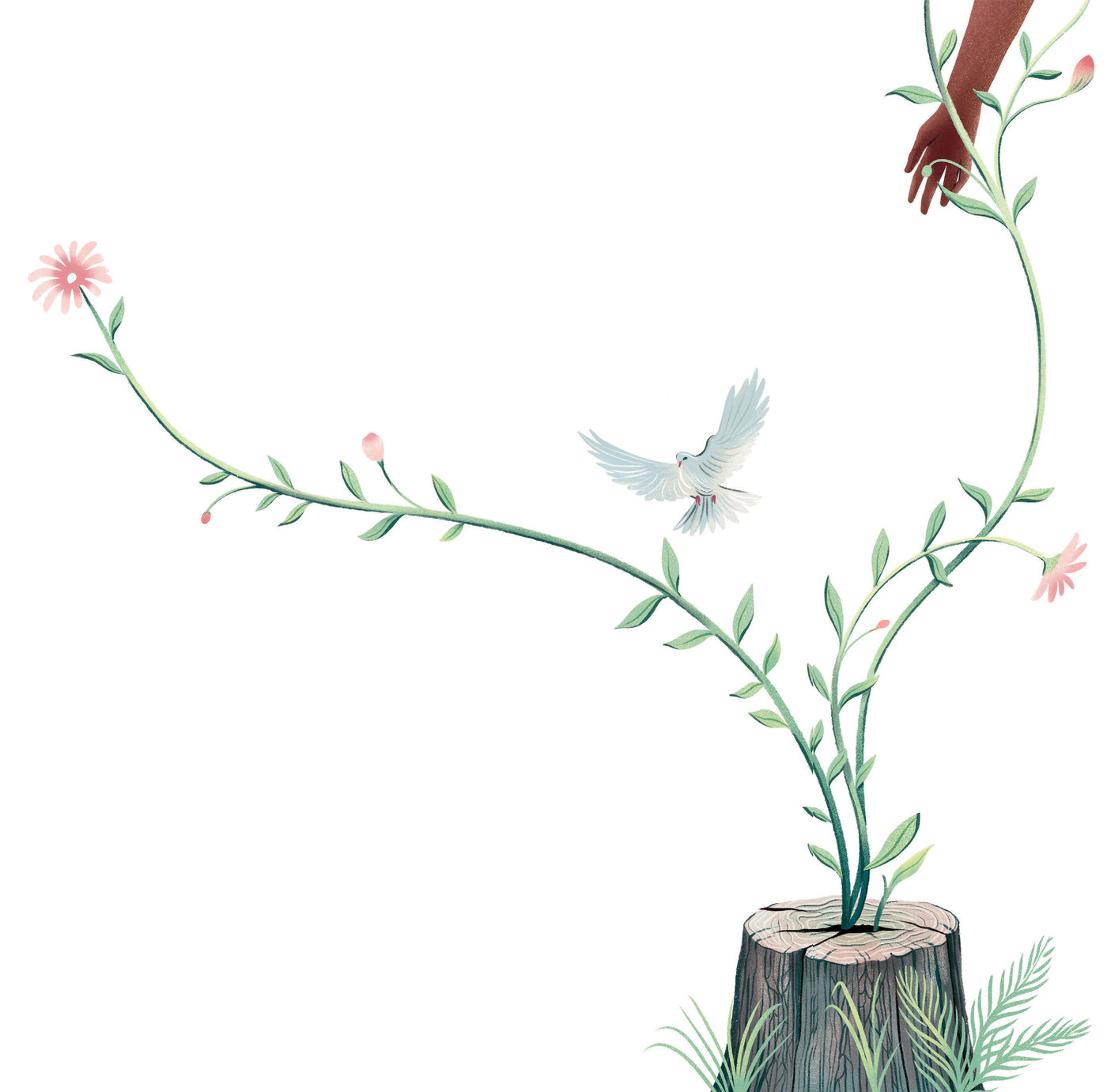
In his landmark essay, “The Vocation of the Black Scholar and the Struggles of the Black Community,” Vincent Harding2 observes that nations and individuals are marked by the questions they choose not to ask. The same is true of theological schools. The questions theological schools choose and choose not to pursue are determined by the contexts and communities of accountability in which our endeavors are embedded.
The origins of historically Black theological schools3 take place in a time when Black literacy was a revolutionary enterprise. Historically Black theological schools derive from these origins an animating principle that locates our vocation in a lineage of resistance and self-determination. Drawing from this heritage, the question for Black theological education is not about whether Black lives matter. The “mattering” of Black life is an inherent institutional gift of historically Black theological schools. This moment requires of us a clarification of vocation, a reckoning with the nature and purpose of our collective work in light of the existential condition of our churches and communities.
Harding writes about the situation of the Black scholar, “Our essential social, political. and spiritual context is the colonized situation of the masses of the black community in America.” This describes the situation of Black theological education, as it also describes the situation of theological education in the United States writ large. The viral viewing of George Floyd’s brutal killing at the hands of police unveiled this reality for far too many previously oblivious individuals and institutions. Awakening to this reality, theological schools must wrestle with the question of their vocation in light of identity. Historically Black theological schools represent a panoply of Christian identities and approaches to theological education. Yet, we hold this in common: the vocation of Black theological education is Black liberation.4
Identity
Institutions are contextualized manifestations of the communities which birthed them. Historically Black theological institutions experience assaults on Black life in the first person. These institutions are repositories of the journey toward Black self-definition and generative grounding for an undefined future. They exist as part of a “community in struggle.”5 Again, Harding elegantly lays out the heart of the matter: “For it is only within the context of the long fight for freedom of the black community that we are ultimately moved towards a true sense of ourselves.” The same is true of the historically Black theological schools as it is of any person or other institution in the Black community.
This moment highlights a latent tension between our aims and the dominant culture of the theological academy. While we cherish the theoretical, our vocation demands that we contend with both the existential and the material. Our narratives, our histories, and our origins are core aspects of the Black theological enterprise. Our existence and inclusion are vital as a counter to dominant theological discourse.
Identity and self-determination are conjoined threads in the tapestry that is the lived experience of being a person of African descent in the American context. They join together as the core of what we study as an academic enterprise. Questions arise from contexts. Contexts are formed in the shared experience(s) that determine a community of accountability. We strive for the commonweal of Black and Brown people. Our academic pursuits emerge from our common struggle and speak to the existential realities of “being Black in America.” At the same time, our questions are also illustrative of human experience, as commonly understood. In short, our struggle — our liberation — is ingredient to the liberation of all humankind.
Vocation
The liberative vocation of Black theological education aims to free both the intellect and imagination from the bonds of colonized6 pedagogies. In so doing it empowers learners to draw from their own wells of theological genius embedded in Black spiritualities, histories, and cultures. Here, Black students and scholars participate in formation, inquiry and reflection, without having to argue for the legitimacy of their cultural and theological traditions. Black theological education engages Black life as subject rather than object.
Black scholarship in general, and Black theological education in particular, endeavor to cultivate truth-tellers who unearth the liberating truths about our people, their multiple heritages, and their contributions to the theological enterprise. This work is Afrocentric in its pedagogical and theological orientation. It is practically theoretical and theoretically practical, nurturing new knowledge and consciousness which aims toward a decolonized existence within the Black community in America.
Black theological education tells the whole story; it shines light upon empowering, and often hidden truths and heritages of Black religion and resistance. Black theological and religious scholarship, too often ignored and marginalized in the broader academy, situates the first public freedom movements in the U.S. within the womb of Black religion. This movement is now embodied in a cadre of both churched and unchurched BLM freedom fighters. This is liberation that derives from the work of the pew and pulpit the re-creation of community informed by subjugated historical knowledge and cultural gifts that free the Black community in struggle from the anti-Black pedagogy of internalized inferiority and oppression. Black scholars are vanguards in naming the systemic disgraces and ideological barriers in the theories of education, triumphalism, and absolutism of this present age that lend to their future possibilities of what Harding deemed “anti-black destructiveness.”
Black theological education is an antidote to theological miseducation.7 It is a call to decolonize the mind of the Black learner. Historically, theological education in the United States has universalized a Western intellectual tradition formed in the anti-Black crucible of modernity. Black theological education cultivates, preserves, and disseminates the knowledge constructs, wisdom, cultures, and practices that have long sustained Black communities of faith and resistance. It offers Black communities and churches the inner armor of empowerment to resist oppression, endure present-day unrest, and imagine a future that remembers the best of our past and facilitates our Black freedom and thriving.
We affirm simultaneously the universality of our experience and the singularity of our struggle. We exist because God’s prophetic voice will not abandon the human project God first pronounced as good (Genesis 1:31). Whether Baptist or Methodist or Church of God in Christ or free church, our specific struggles speak to a common experience. This is a debt — it is a duty — we owe to our ancestors who traversed the unimaginable. Again, Harding says it poignantly: “Our ancestors did not wade through rivers of blood so that we might surrender the interpretation of their lives into the hands of others.”
Notes
1. Black Lives Matter may be understood as a global movement, rather than a specific organization, fostering freedom and justice for Black people around the world.
2. Vincent Harding (1931-2014) was a Mennonite pastor and historian who focused his scholarship on cultural transformation and the Black experience in America. He taught at the University of Pennsylvania, Spelman College, Temple University, and Swarthmore College, and he was the first director of the Martin Luther King Jr. Memorial Center.
3. Historically Black theological schools: The Higher Education Act of 1965, as amended, defines historically Black colleges and universities (HBCUs) as institutions of higher education, established before 1964, “whose principal mission was, and is, the education of Black Americans.” As graduate schools of theology, historically Black theological schools should be considered a subset of the larger category of HBCUs.
4. Black liberation refers to more than just freedom from overt discrimination and freedom from unconscious bias. It also encompasses liberation from historical and cultural narratives that assume the ideas and actions of Europeans (and their white descendants) are central and significant, while the ideas and actions of people in the rest of the world are peripheral.
5. Colonized, decolonized, and other similar words may be understood as part of a widespread academic discourse that has developed in the last 50 years, with scholars of color (from Africa, Asia, and the Americas) leading the way. This scholarship of decolonization critiques the manner in which the history and culture of all people, including Black people, have been interpreted through a white lens — with white people as the “subjects (people who do things) and people of color as “objects” (people to whom things are done). Decolonization places people of color squarely in the center, as actors (subjects) rather than as bystanders or victims (objects).
6. Community in struggle: Black theological scholarship asserts that resistance to oppression and racism, and the corresponding struggle for freedom and liberation, are integral, defining characteristics of the Black religious experience. It further insists that this struggle, as a core component of Black religion, merits scholarly study and analysis.
7. Miseducation is a reference to Carter G. Woodson's seminal book, The Mis-Education of the Negro (1933).
Reflections on the current moment
The authors consider protests, pedagogy, and a new text for our fallen reality
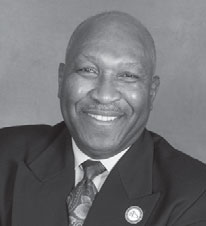
Vergel Lattimore
This moment has provided affective opportunities for persons to vent a variety of frustrations and remorse about being sold a bill of myths, falsehoods, and deception. The frustrations have prodded many to march and protest. The question is whether this emotional response will result in measured change, ongoing actions, and investment for altered social values. What happens when class is dismissed and no television cameras are around?
Michael Joseph Brown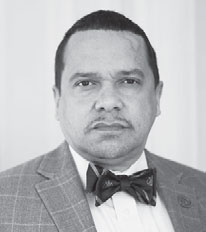
For the historically Black theological schools, the moment signifies the validity of the postmodern move and the disestablishment of hegemonic theological education. The Enlightenment scales have fallen from our eyes, and our fallen reality is starkly apparent. Now the re-education can begin!
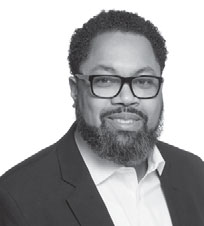
Gregory Howard
The Black Lives Matter movement is bringing before us a new text, apart from the ancient biblical text and context, that speaks of an oppressed people. America, as an empire, is being made to consider the voices and the lives and the values of the oppressed of today, in particular Black and Brown bodies being slain by those who swore to serve and protect. This uniquely oppressed community in many ways is creating a larger discipleship and body of followers who are demanding a social response. And it’s being done in some form of Christological fashion — Jesus-type justice then, Jesus-type justice now.
Matthew Wesley Williams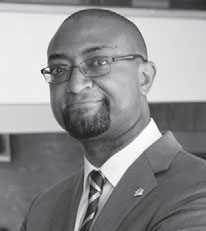
For the sake of survival we have had to understand white folks better than they understand themselves. It’s a survival need for us, so we know how to maneuver around and within and between these white institutions. White supremacy at its core is a program of dispossession, extraction, and exploitation. And that program is undergirded by this thing we call “whiteness,” which is a false identity. It has no grounding in any land, in any culture. The only cultural content of whiteness is dominance, is power. When ethnic Europeans came through Ellis Island they had to give up whatever their ethnic heritage was, and become white to become American. So that whiteness involves a kind of erasure of lineage and self that leaves folks a very fragile place upon which to stand.
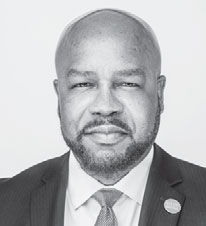
Johnny Hill
Some of the approaches of predominantly white institutions are to try to attract Black students as a way of addressing the issues and questions now being raised by the Black Lives Matter movement — as though having more Black students in their institutions will help them to address those problems. What we’ve learned is that it’s more than just having Black students — it’s also about the curriculum and the way in which we teach, the pedagogy, the content of the program itself. In a lot of predominantly white institutions, there’s a lack of critical engagement with the content, so you’re basically bringing Black students into an environment where they’re being taught white supremacist theological perspectives.
CONTINUED SUPPORT FOR THE GIFT OF BLACK THEOLOGICAL EDUCATION
Lilly Endowment has awarded the In Trust Center for Theological Schools a $1.5 million grant to continue coordination of a collaborative among Black theological schools, congregations, and other Black church organizations and help them respond to the ongoing challenges of the COVID-19 and systemic racism pandemics.